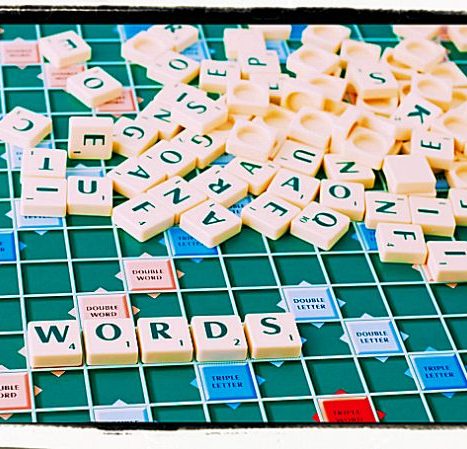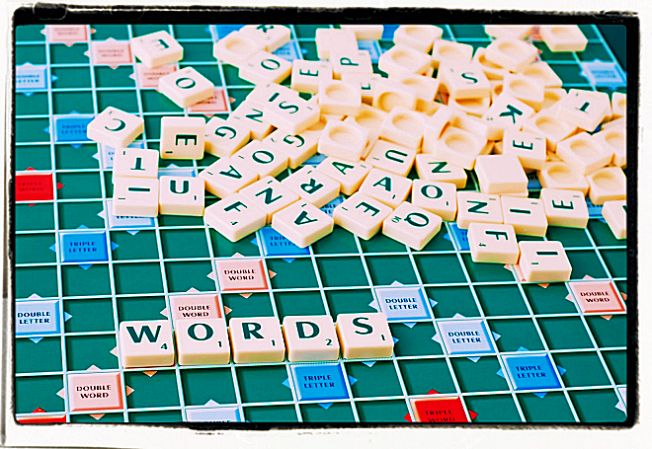
English spelling rules, the 20 Fundamental Spelling Rules and more that everyone should know with a lot of examples, images, and an article about exceptions.
Spelling rules can take the mystery out of spelling by demonstrating patterns among seemingly unrelated words. Learning these rules will help you see connections between unfamiliar words as well as words you already know. Of course, there’s no such thing as a hard-and-fast spelling rule. There are many exceptions because English borrows from many languages and is constantly changing and adopting new words. Still, it’s important to master these basic spelling rules. They might not work every time, but they’ll apply often enough to help you succeed.
Both native English speakers and nonnative speakers regard the spelling of English as one of its most difficult characteristics. The English spelling system is not based on a phonetic correspondence between sounds and letters, as is the spelling of Spanish and certain other languages. Instead, English spelling reflects the historical development of the language. The same combination of letters can produce different pronunciations. Similarly, different combinations of letters can produce the same pronunciation. It’s tough to encompass all the twists and turns of the English language into one concise list. “Rules” is a tough word to use in this context, because grammar rules tend to shift, depending on the situation. Still, everyone needs to know the basic spelling rules.
You can teach yourself to be a better speller. It is important to realize that learning to spell is a process that is never complete. Spelling is something that everyone has to pay attention to and keep working at it. Knowing spelling rules, and the exceptions to the rule, is a great strategy to help you understand why spelling is the way it is and helps you spell. Improving your spelling skills is largely a matter of personal commitment: looking up a word you’re not sure of, keeping the dictionary at hand, keeping a list of words you know you have trouble with.
Some people think if they learn a spelling rule they’ll be able to spell. Unfortunately, the trouble with rules is you have to remember the rule! And which words work with the rule and the words that don’t! What matters most, however, is that these rules give the students a place to start when they encounter a word that they do not know how to pronounce. It’s always good to know why spelling is the way it, and knowing spelling rules is one of many strategies to help you spell well. So even if you forget the rule, maybe you’ll remember the spelling pattern, and at least you hopefully will know why a spelling is the way it is.
English is a complicated language with complicated rules of spelling and pronunciation and everyone can derive some comfort from knowing that some very good writers have been notoriously bad spellers. It’s also comforting to bad spellers to know that this business of spelling seems to have little to do with intelligence. It has more to do with how we remember things. Some people, once they’ve seen a word spelled correctly, will never misspell that word again. Those are the people who, if you ask them how to spell a word, will first say, “Wait a second. Let me write it down.” If you are not a strong visual learner, but learn in other ways, you will have to learn some other tricks to become a strong speller.
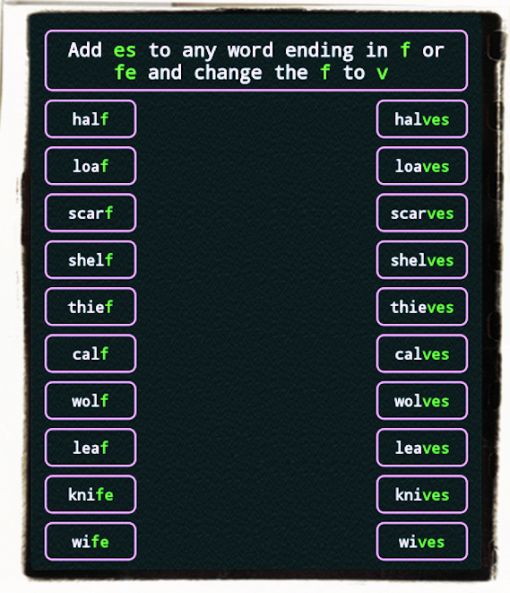
Spelling Rules Examples
1. U Always Follows Q
The letter “q” is almost always followed by “u,” as in words like queen, earthquake and equity. When used in this way, the “u” is not considered to be a vowel. There are a few exceptions to this rule, but the words they apply to are not commonly used words most people are likely to encounter.
2. S Never Follows X
A number of words are pronounced with an /s/ sound after the letter “x,” which often leads to spelling mistakes. The rule is that the letter “s” never follows “x” in a word. Instead, the letter “c” is used to achieve the /s/ sound in the word, as is the case with words like excise and excite.
3. Every Syllable Includes a Vowel
Every syllable of every word includes at least one vowel. Most one-syllable words with a short vowel sound need only one vowel. When you’re spelling a word, say it out loud to identify the number of syllables. Then, look at what you’ve written to verify that each syllable has at least one vowel. If not, rethink the way you have spelled it. Some syllables may have a vowel diagraph, which is a pair of vowels that form a single sound.
4. I Before E Except After C (Most of the Time)
In many words that include an “i” and an “e” side-by-side, the “i” comes first. Words that illustrate this concept include niece, belief, cashier and achieve. It is generally true that “i” comes before “e,” unless the vowel pair follows the letter “c” (such as with conceit, ceiling), or if the vowel pair makes a long /a/ sound, such as in neighbor or weigh. However, there are quite a few special-case exceptions, as with words like leisure, height and heist.
5. Use -ck After a Short Vowel
For words that end with a /k/ sound, you’ll need to know when to use “ck” vs. just a “k” on its own. The rule is to use “ck” immediately after a short vowel, such as with duck, sick, or tick. Otherwise, the word should end with a “k,” as with silk, balk, beak, or peak.
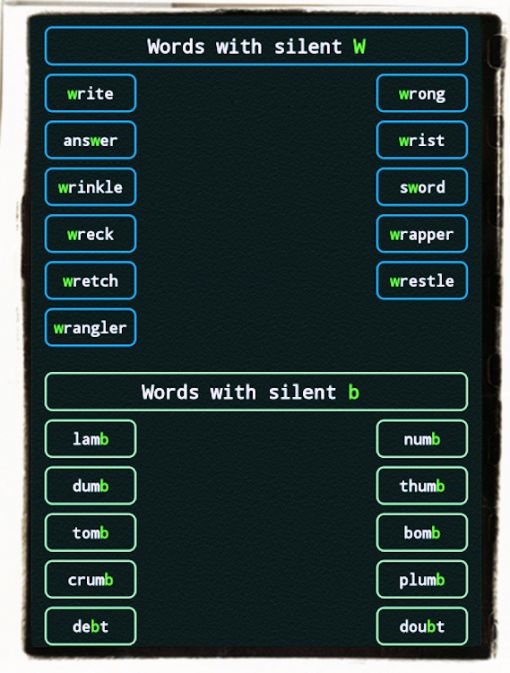
6. End 1-Syllable Words With Double F’s and L’s
If the letters “f” or “l” fall at the end of a one-syllable word, they should usually be doubled. Examples include words like stiff and stall. The only exception is words that that end with a consonant blend, such as whirl or wharf. Do not double “f” or “l” with such terms.
7. Changing the -y to -i when adding suffix endings.
If a word ends in a consonant + Y, the Y changes to i (unless adding endings with “i” -ing -ish, which already begins with an i)
beauty + ful – beauti+ful = beautiful, beautify, beautician
happy + ness = – happiness, happily, happier, happiest
angry + er = angrier, angriest, angrily,
pretty: prettier, prettiest but prettyish
ready: readily readiness
dry: dried, BUT drying, dryish
defy: defies, defied, but defying
apply: applies, applied but applying
8. Usually End 1-Syllable Words With Two S’s
The letter “s” is also usually doubled at the end of a single-syllable word, though there are more exceptions for “s” than for “f” and “l.” Words like bliss, kiss and class are examples of terms that require two s’s at the end.
There are quite a few exceptions. Get familiar with these exceptions, so you’ll know whether to use one “s” or two at the end of a word.
Words that end with an “s” that’s pronounced as /z/ end with one “s.” (his or was)
Plural words that end in “s” have only one “s”. (cats, dogs burgers)
Present tense verbs that end with an “s” have only one. (dances, sings, climbs)
Words that have three or fewer letters have only one. (gas, yes)
The word “this” is a special case that has only one “s” at the end.
9. Drop the Silent E Before Most Suffixes
Many words end with a silent “e.” When adding a suffix that starts with a vowel, the silent “e” should usually be removed in American English. For example, the word race would become racing when adding -ing. When adding -ed to bake, the new word would be baked.
Get familiar with the exceptions so you can always correctly decide whether to drop the silent “e” or keep it.
Keep silent “e” when adding -able (manageable).
Keep silent “e” when a word ends with two e’s (fleeing).
The suffix -y is a special case. The silent “e” is removed for shiny, but kept with dicey.
Examples
write + ing – writing
hope + ed = hoped
excite + able = excitable
joke – joker
large – largish
close – closing
sense + ible = sensible
opposite + ion = opposition
imagine + ation = imagination
We keep the ‘e’ if the word ends in –CE or –GE to keep a soft sound, with able/ous
courage + ous = courageous
outrage + ous = outrageous
notice + able = noticeable
manage + able = manageable
10. Keep All Letters With a Vowel, Y Ending
When adding a suffix to a word that ends with a vowel and a “y,” just add the suffix to the original word. You won’t need to drop or change any letters. For example, jockey simply becomes jockeying or jockeyed, because the last two letters of the original word are a vowel followed by a “y.”
With a vowel followed by a “y” at the end of a word, you can add any suffix without having to adjust the original term. The same is true for toy (toying, toyed) and journey (journeying, journeyed), as well as other terms that end with a vowel and “y” combination.

11. The Prefix al- is All Less an L
The word all has two l’s at the end when written alone, but the prefix -al has only one “l.” Words that begin with the prefix -al should not be spelled as if they are compound words that feature the full word “all.” Words with -al as a prefix include almost, also, altogether, and always. As such, they correctly feature only one “l” in the first syllable.
So remember, when we add “all” to the beginning of words we drop the l
all + so = also
all + most = almost
although
always
almighty
already
alright (all right as two words is used in more formal English)
altogether (Note that altogether and all together do not mean the same thing. Altogether means ‘in total’, as in there are six bedrooms altogether, whereas all together means ‘all in one place’ or ‘all at once’, as in it was good to have a group of friends all together; they came in all together.)
12. Prefixes (Generally) Don’t Change the Spelling
The rule for adding prefixes to a word is much simpler than adding a suffix, from a spelling perspective. Generally, adding a prefix to a word does not change the correct spelling. So, adding de- to “activate” results in “deactivate.” Similarly, and adding non- to “fiction” becomes “nonfiction.”
13. Apostrophes Go Where Letters Are Removed
Proper apostrophe placement in contractions is an important part of spelling. An apostrophe should be placed in the exact spot where there is a missing letter (or multiple missing letters). For example, the apostrophe in the word “can’t” signifies the missing letters “n” and “o” from the word cannot.
People sometimes shorten the word old to ol’. Have you ever seen someone write it as ‘ol? If so, that apostrophe was placed in error, because the apostrophe stands in place of the “d” that is missing from old.
14. Changing -y to -ies or -s
You might not know the spelling rule but you might know the spelling pattern – most people do.
When the word ends in a vowel + y just add ‘s’
key – keys
delay – delays
trolley – trolleys
(because we can’t have three vowels in a row delaies x )
If the word has a consonant before the ‘y’:
take off the ‘y’ and add ‘ies’
baby – babies
company – companies
difficulty – difficulties
15. Adding -es to words ending in -s, -ss, -z -ch -sh -x
This was added centuries ago to stop the plural ‘s’ clashing with these letters and it softens the ‘s’ sound to a ‘z’ sound
bus – buses
business – businesses
watch – watches
box – boxes
quiz – quizzes
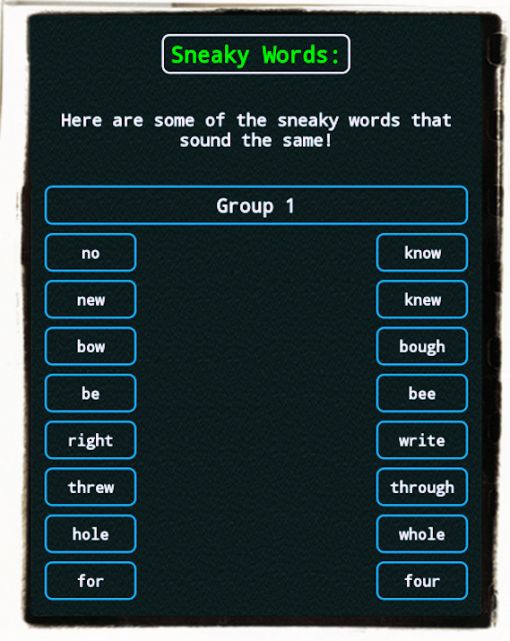
16. doubling up rule
put – putting, big-bigger, quiz – quizzes, swim – swimming…
When a word has one syllable + 1 vowel next to 1 consonant we double up the final consonant with a vowel suffix:
sit – sitter, big – biggest, tap – tapping, shop – shopper/shopping, fat – fatten, fattening, fatter, fattest…
This happens in longer words when the stress is on the final syllable:
begin (beGIN) – beginner, beginning
refer (reFER) – referring, referred
occur (ocCUR) – occurring, occurred, occurrence
17. -f to -ves or -s
Most words ending in “-f” or “-fe” change their plurals to “-ves”
calf – calves
half – halves
knife – knives
leaf – leaves
loaf – loaves
life – lives
wife – wives
shelf – shelves
thief – thieves
yourself – yourselves
Some words can have both endings -ves or -s:
scarf – scarfs/scarves
dwarf – dwarfs/dwarves
wharf – wharfs/wharves
handkerchief – handkerchiefs/handkerchieves
Words ending in -ff you just add -s to make the plural.
cliff – cliffs
toff – toffs
scuff – scuffs
sniff – sniffs
Some words ending in -f add -s:
Nouns which end in two vowels plus -f usually form plurals in the normal way, with just an -s
chief – chiefs
spoof – spoofs
roof – roofs
chief – chiefs
oaf – oafs
EXCEPTIONS: thief – thieves, leaf – leaves
18. Words ending in -ful
The suffix –ful is always spelt with one L, for example:
grate + ful = grateful
faith + ful = faithful
hope + ful = hopeful
careful
helpful
useful
grateful
beautiful (notice the -y becomes -i)
19. Adding -ly
When we add -ly to words ending in -ful then we have double letters
gratefully
faithfully
hopefully
We also add -ly to words ending in ‘e’
love + ly = lovely
like + ly = likely
live + ly = lively
complete + ly = completely
definite + ly = definitely
BUT not truly (true + ly) This is a common misspelled word.
We change the end ‘e’ to ‘y’ in these -le words
gentle ? gently
idle ? idly
subtle ? subtly
20. Do Not End a Word With V or J
There are no commonly used words that end with the letter “v” or “j.” If you’re spelling a word that ends with a /v/ sound, you can be sure that there’s a silent “e” on the end, as with hive or jive. Words that end with a /j/ sound are typically spelled with -dge and the end, such as judge or edge. If you’re writing a word that is used in ordinary communication, it won’t end with a “v” or “j.”
Mastering Spelling Rules for Life
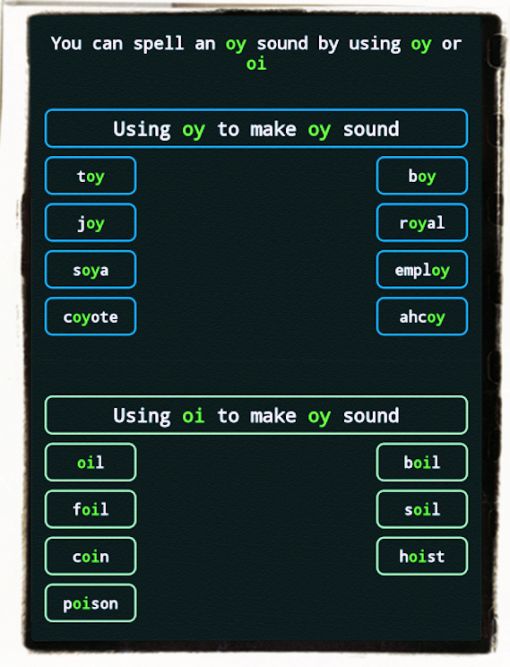
Last but not least, writers who grow up in England, Canada, the Barbados, or any place where spelling habits conform to British preferences will be perplexed when the word colour comes back from an American instructor with a slash mark through the u. When Noah Webster started putting his dictionary together, he thought it would be a good idea to simplify some English spelling and that -our was one ending he thought we Americans could do without. Standard American spelling, ever since then, has been sometimes different from British, and it extends to other words as well. A good dictionary, even a good American dictionary, should account for these differences. Instructors should also be equipped to account for them, if not to allow for them.
American Vs British: canceled/cancelled; center/centre; check/cheque; color/colour; criticize/criticise; gray/ grey; humor/humour; judgment/judgement; labor/labour; license/licence; realize/realise; theater/theatre; tire/tyre; valor valour.
When Two Vowels Go Walking by Marie Rippel
Catchy rhymes can be a fun and easy way to remember some of those pesky phonics rules. Have you heard of this one?
When two vowels go walking, the first one does the talking.
It’s a cute rhyme that’s easily remembered, and most teachers simply take it for granted that it is true, especially if their phonics program includes the rule as fact. And for the sake of convenience, it would be wonderful if this rule were true – teaching reading and spelling would be much simpler. But this “rule” is actually false 60% of the time.
To test the rule, I took the 1,000 most common words and analyzed them by applying the rule to each one. I discovered that, contrary to the rule’s claim, only 43% of the words actually followed the rule, and a stunning 57% of the words did not! When I analyzed the top 2,000 words, the percentage shifted even further – only 36% of the words followed the rule, and 64% did not. So much for this oft-repeated phrase!
This is not to say that the rule is entirely invalid. There are many cases in which two vowels “go walking,” including ai, au, ea, ee, ei, ie, oa, eo, oi, oo, ou, and ui. And when a pair of vowels appears in a word, it is often the first vowel that “does that talking,” as represented in words like green, sea, hair, coat, clean, rain, and peach.
However – and this is the important part – these same vowel teams also exist in many words that don’t follow the “when two vowels go walking” rule, including good, about, earth, bear, noise, author, and friend.
Instead of relying on the incorrect guidance of this (fake) rule, teach your students the sounds of the letter combinations (called phonograms). Your student will learn important and fundamental concepts, such as ai says and so on. This knowledge will give your students some real tools to work with – and there will be nothing to unlearn later!
At the following links you can find a lot of useful and interesting English language material:
Video links to learn good English
Interactive English exercises and tests
Countable and uncountable nouns
www.daimon.org/education/english/ Lots of links
www.liveworksheets.com All languages
English Phonetic Symbols with reading examples
https://www.pppst.com/ Lots of free Ppt
http://iteslj.org/questions/ Lots of questions
www.goethe-verlag.com Lots of tests
Improving-bad-grades Article
www.perfect-english-grammar.com
https://www.daimon.org/lib/books.htm Lots of free ebooks
https://epdf.pub/en/ Lots of free ebooks
www.english-online.org.uk/exam.htm
http://www.englishmedialab.com
https://www.englishexercises.org
http://www.tuneintoenglish.com Karaoke songs
Read carefully my friends, I have written more than 10,000 original quotes in Italian, they are all available in the Daimon Club website and in my private electronic library I have something as 200,000 English quotes and thousands of books about everything, most of all classic texts on the English Language, its grammar, its vocabulary and on the main classic subjects taught at secondary school, college and university; therefore if you need something just visit The World Of English on Facebook, like the page, write me, and let me know if I may be of assistance. Bye bye and remember, stay safe, be good and if you can’t be good, at least be careful.

